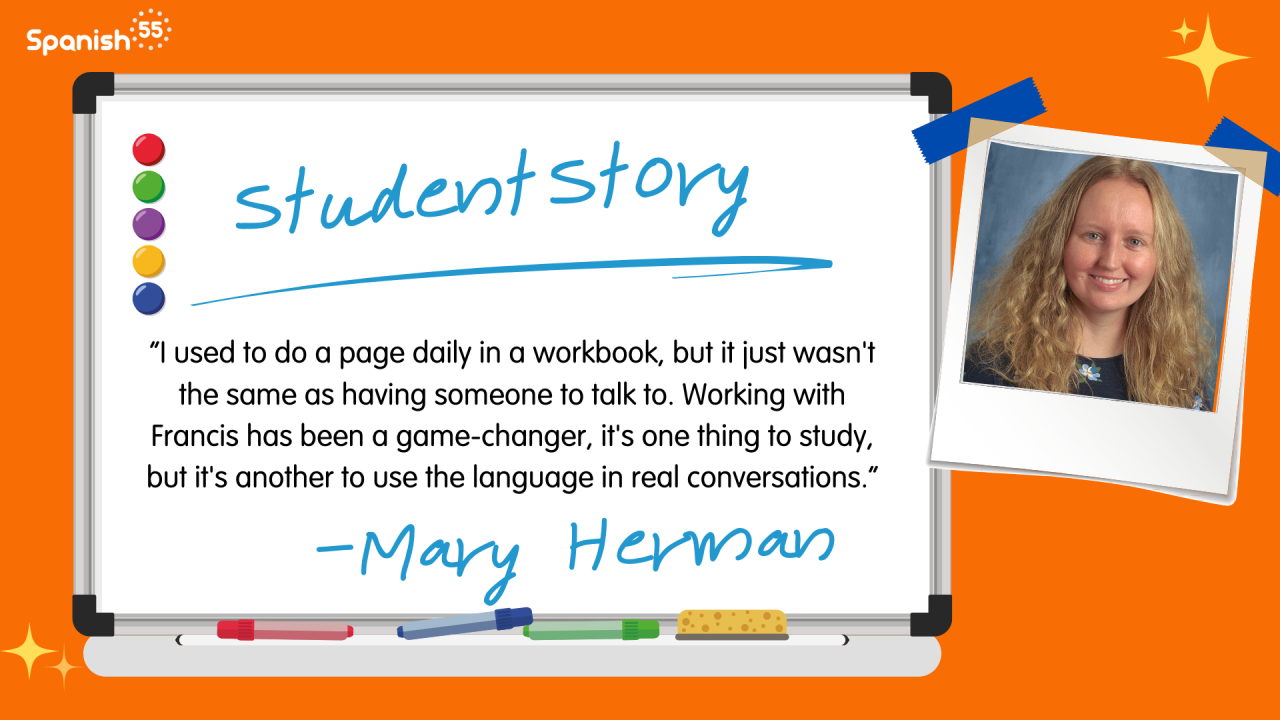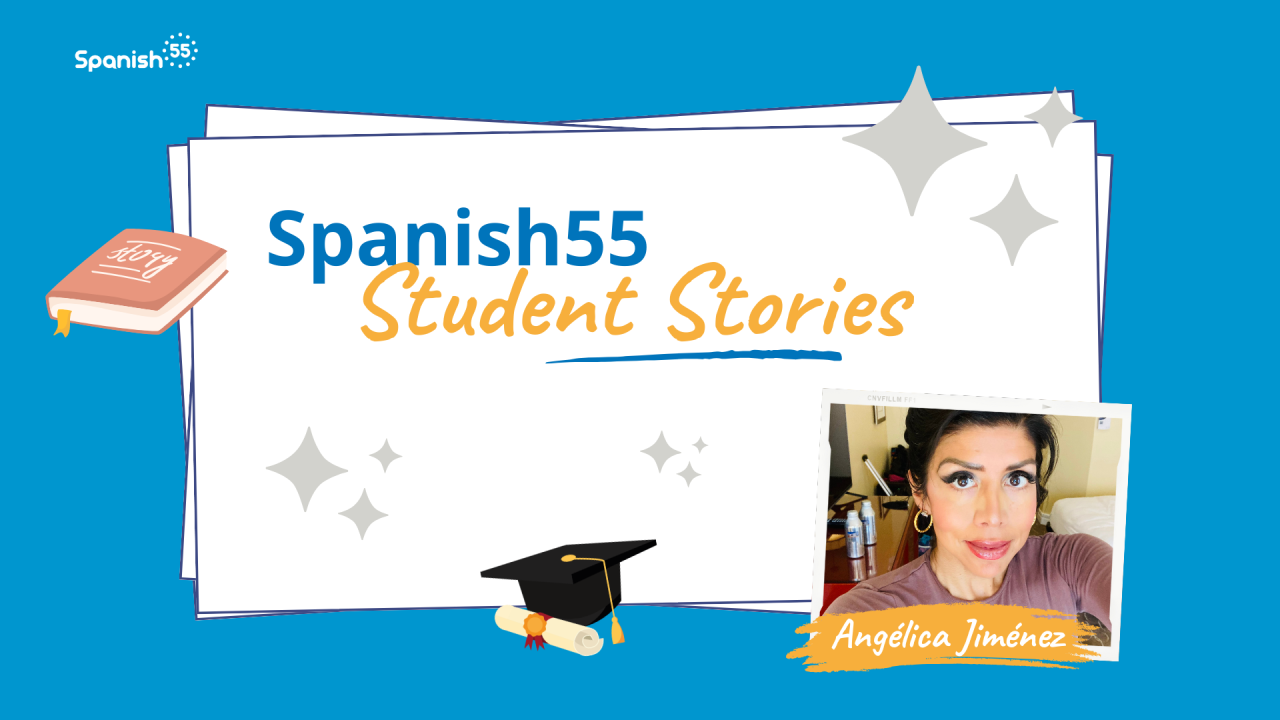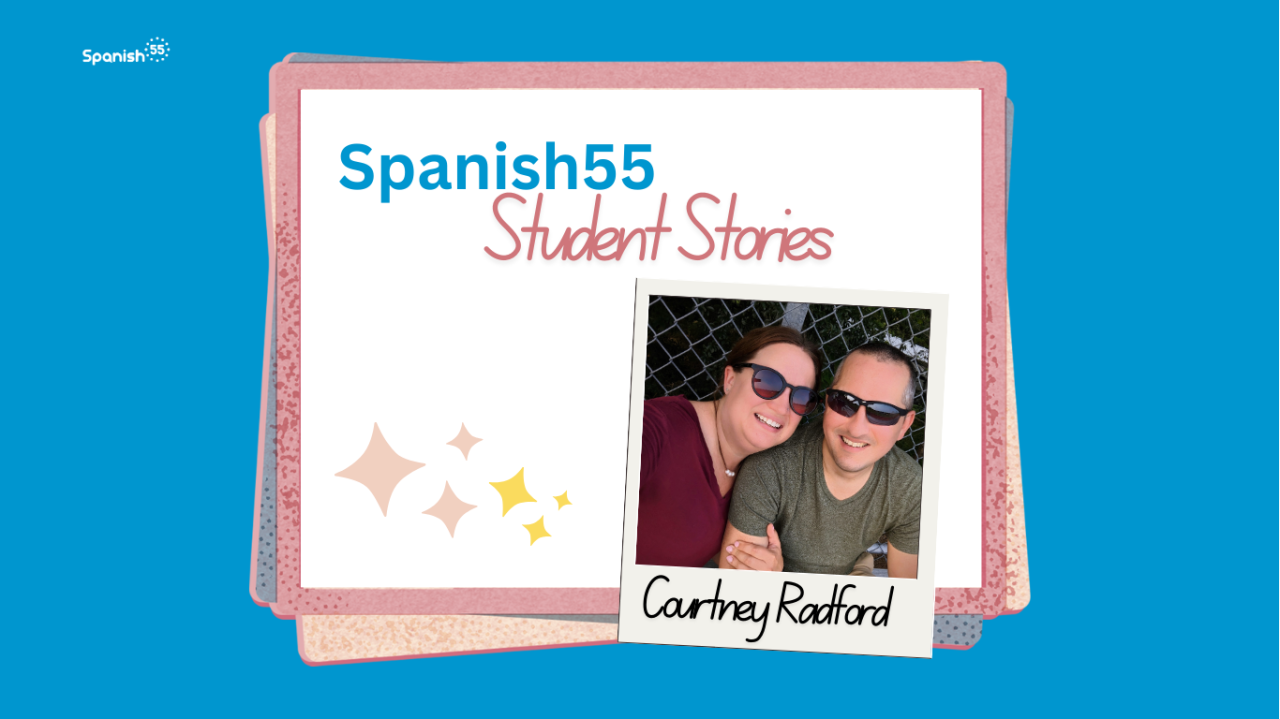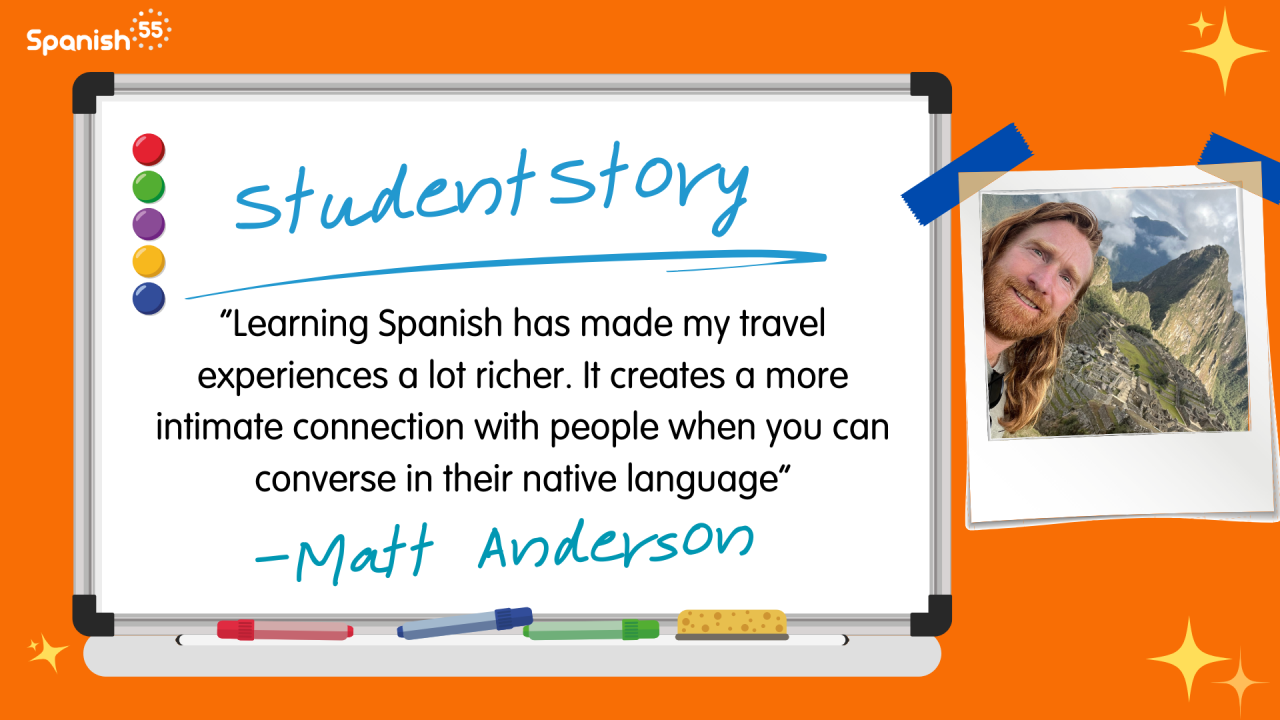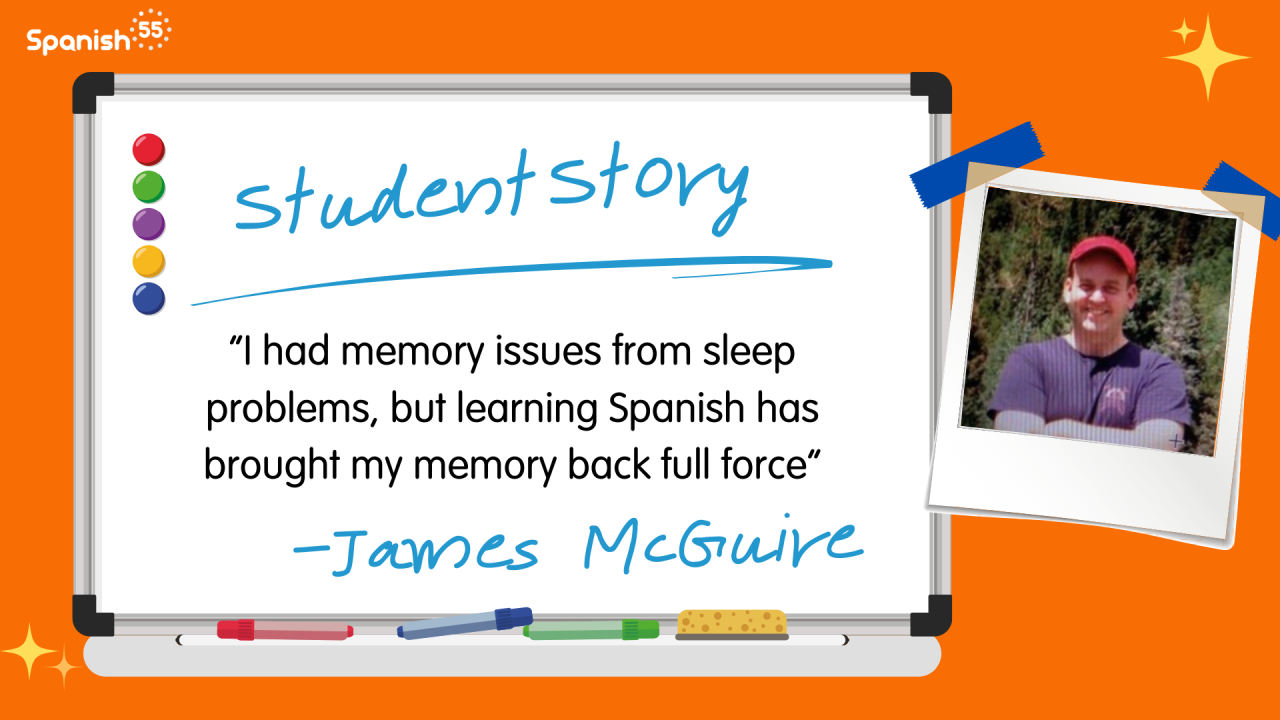How Can Spanish Help You Strengthen Family Bonds and Cultural Identity?
Finding Her (Literal) Roots: A Teacher’s Commitment to Spanish
Victoria Marshall didn’t just learn Spanish to improve a skill, she learned it to find a missing part of herself. Born in Chile and raised in Philadelphia, Victoria spent years committed to mastering Spanish, not just for personal growth, but to reconnect with her birth family and strengthen ties within her diverse community. In this article, discover how steady practice, patience, and a deep desire to belong turned her Spanish journey into something truly life-changing.
Victoria Marshall introduces herself with a confident smile and clear Spanish: "Hola, me llamo Victoria y soy de Philadelphia, Pennsylvania. Soy una maestra en el distrito de Philadelphia y enseño el tercer grado. También soy nadadora en un equipo de natación de los Estados Unidos.” It's a greeting that she delivers with ample ease, reflecting how hard she has worked on her Spanish craft over the past few years. Yet behind her warm demeanor lies a deeper story about reconnecting with the culture she inherited from birth and committing to her goals.
Born in Chile and raised by a family in Philadelphia, Victoria recalls feeling that she was missing important pieces of her personal history. "I thought learning Spanish could help me reach out to my birth mother," she says, explaining how she once imagined what that first conversation might be like. Over time, she uncovered more than a way to speak: each new word offered a chance to uncover the roots she longed to explore. By the time she got to middle school, Spanish felt more natural than other languages, so she kept going through high school and enrolled in advanced courses at college.
After a detour into Chinese studies and a period living in Korea, she decided to return to Spanish about five years ago, determined not to let it slip away again. She carved out space in her weekly routine, all while balancing life as a third-grade teacher who helps shape young minds in Philadelphia's busy school district. In her spare time, she also trains as a swimmer on a U.S.A. Masters team, so her days are never short on commitments. Even so, her enthusiasm for Spanish never wobbled. "I just make the time," she says.
That commitment did not mean an absence of struggles. "There have been moments where I didn't feel like I had the best lesson," she admits. Grammar can be a stumbling block, and keeping verb conjugations straight sometimes feels like a puzzle with too many pieces. Still, she pushes forward. "My Coach is patient and finds me extra exercises. She always tells me it's normal to make mistakes." Knowing a single rough session doesn't define her progress, Victoria stays focused on the bigger picture and returns each week ready to learn.

Her growing ease with Spanish has a practical side, too. Teaching in a diverse community inspired her to use Spanish as a way to invite more families to school events. You'll find her greeting parents at the door or handing out flyers for a cultural program, as the chance to communicate in Spanish makes people feel included — and helps her practice, too! "It helps them see they're welcome, and their voices matter," she notes. She believes engagement is essential: "Without parent participation, the school doesn't do as well." Her warmth and willingness to speak their language go a long way toward making everyone feel at home.
As she recalls, one of Victoria's proudest moments involved a parent-teacher conference conducted entirely in Spanish. "I was definitely nervous," she confesses. However, she had recently brushed up on education-related vocabulary, and this gave her enough confidence to get through the meeting smoothly. "The parent told me, 'Thank you for speaking to me in my language.' It was so moving. I showed respect for her background. That conversation confirmed her belief that every bit of effort pays off when it comes to building genuine connections.
Her language skills also enrich the tiny moments of daily life. Tackling into local restaurants, she happily chats with owners about regional dishes, comparing notes on how Chilean and Peruvian cuisines overlap. "It's amazing how much you pick up just by asking questions and listening," she exemplifies. For Victoria, these conversations spark a sense of belonging she once wasn't sure she would find. She may have grown up in Pennsylvania, but each Spanish exchange brings her closer to her birth culture.
Victoria sets aside at least 15 minutes a day to keep her skills sharp. Sometimes trying out online quizzes to expand her vocabulary, other times unwinding with a Spanish-language show. She especially likes La Rosa de Guadalupe, a long-running Mexican primetime drama series that stops short from being a telenovela, pausing and rewinding when needed to catch quick bits of dialogue. Reading in Spanish provides another window into Chile. She's halfway through La Casa de los Espíritus by Isabel Allende, which she first encountered in English. "Some phrases don't translate exactly," she says, amused at how new nuances reveal themselves in the original text.

However, connecting with relatives in Chile has become the sweetest reward of all. She speaks to her family weekly, now able to express herself more fully than she ever dreamed possible. "It's a feeling I can't describe," she says, her voice bright with relief and pride. "I'm not perfect, but I can finally communicate, and that means everything!" Victoria's account proves that a steady habit and genuine desire can lead to a more profound sense of self — one that feels more complete with each conversation in Spanish.
Want to hear more about Victoria’s journey in her own words?
Tune into her interview on Conquering Spanish: Interviews with Learners, where she shares how learning Spanish helped her reconnect with her heritage, her family, and her community, one conversation at a time.


